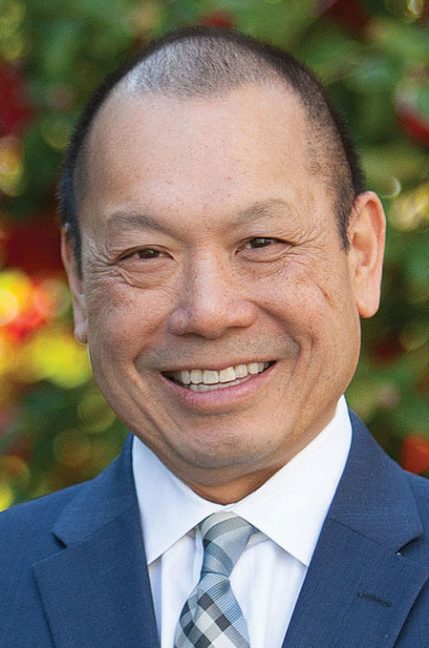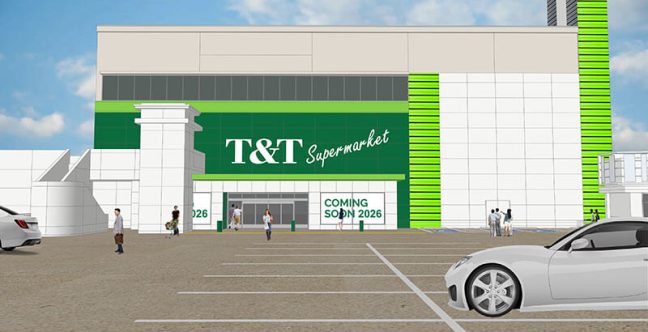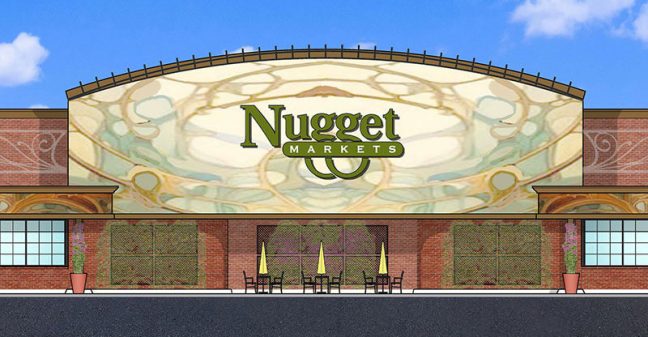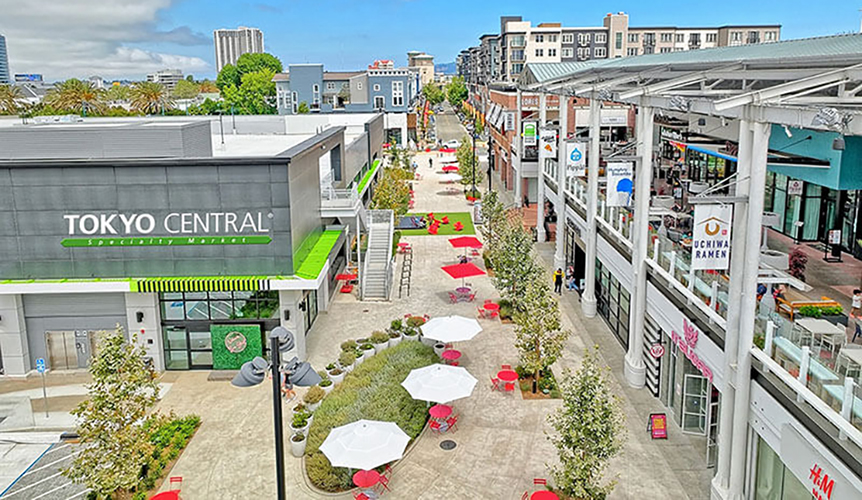Ron Fong, president and CEO of the California Grocers Association, has his hands full. Legislation impacting his membership has been wide-ranging and ongoing this year, from immigration and SNAP to self-checkouts and even shopping cart retrieval.
As of this publication date, the California legislature had reconvened for two weeks to try and come to a consensus to pass some bills.
One of those bills, SB 442, concerns grocery store self-checkouts. The bill would require a certain ratio of employees to be stationed at the self-checkout area based on the number of checkstands. It could be one worker for every two checkstands, or four or six; the ratio will be debated during the August session.
The bill also would prohibit the store from offering self-checkout service to customers unless a traditional checkstand with “a live body” also was available, Fong said.
Alcohol sales through self-checkouts also are part of the debate. These have been prohibited in California since 2011 – it is the only state with such a rule in place – and grocers are pushing for that ruling to be reversed in consideration of customers’ desire for convenience as well as to make up for the added costs they will incur by having to have extra workers in the self-checkout area.
Self-checkout bills were defeated in 2023 and 2024, but they continue to resurface.

Another issue impacting California grocers is immigration enforcement, Fong said.
“The shoppers are worried that ICE agents are going to be at the grocery store parking lot waiting for them,” he said, noting that “business is down just a little bit” at grocery stores as a result.
While supermarket workers must show proof of citizenship before they are allowed to work, immigration enforcement has “created a whole world of uncertainty amongst employees and shoppers,” he said. “The employees are legal, but they worry about getting caught in the system, and then what’s going to happen if they follow them home and their parents are there, or the aunt and uncle who may not be? … It just invokes some fear in people to even come out.”
California’s population is more than 40 percent Hispanic, he added. So that issue is “kind of top of mind right now for our folks. Our owners are trying to calm them and tell them that everything is OK. But, you know, human nature.”
Tariff effects yet to come
The effects of tariffs have yet to be strongly felt, so Fong said grocers are “still kind of waiting and seeing but anticipating that this could be bad on things like avocados, tomatoes, coffee – things that we really rely on importing from other countries. It could really have a big effect.”
Those effects may extend to preventing grocers from building new stores or remodeling others, as metals and refrigerants are target products for tariffs, and both are integral parts of a grocery store’s foundation and equipment.
SNAP cuts
Another “huge” issue is federal budget cuts related to SNAP benefits, Fong said.
He has met with Gov. Gavin Newsom to request that the state make up some of the shortfall. Newsom told Fong he would “take a good look at it,” including assessing programs that were not part of the original intent – to help families under a certain income level to buy food – that have latched onto SNAP.
“Over the years, it’s gone to veteran groups and other groups that it wasn’t intended to go to, and that’s why these budgets are so high now,” Fong said.
“The states then have the ability to make up what the Fed cut, but in California we’re at a big deficit right now, so I don’t know where [the governor] is going to find the money for it,” he acknowledged, adding that Newsom recognizes the program’s importance to many of the state’s residents.
Dislocated shopping cart penalties
CGA continues to fight a bill, SB 753, concerning shopping carts that have been taken off store premises. Current law requires cities to impound the carts for 30 days before disposing of them.
The new bill would allow cities to collect the carts, inform retailers and require them to retrieve the cart(s) and pay a fine for each, without the 30-day waiting period.
“It’s hard for us to control that,” Fong pointed out. “We want [the carts] back, too, but, I think government is interfering here because they want to collect it and then charge us a ridiculous amount of money.”
Cities could charge hundreds of dollars for each cart. Additional fines could be imposed if retailers do not pick up the carts within a specified time frame.
“We’re fighting that bill – it’s not dead yet – but we’ll see what happens between now and the end of August,” Fong said.
Swipe fee limits, EPR legislation stamped out
A bill that would have eliminated swipe fees on taxes and tips was debated in two policy committees, but “California is not ready for that yet,” Fong said.
Under the proposed bill, the tax on grocery purchases would not be subject to swipe fees, nor would tips on restaurant meals.
While California passed an extended producer responsibility bill “many years ago … the regulations were rejected by the governor this year,” Fong said. “He looked at the regulations, and to his credit, he thought it was overly expensive to make end-of-the-line producers comply with all of this. So, he rejected the regulations and asked the state agency to go back at it and rewrite the reg so that they were a little less costly to businesses.
“We don’t know what that looks like yet because the second version hasn’t come back, but we’ll see. CGA has a seat in that committee, so we’ll be able to influence some of this for grocers.”
An issue that surfaced this year and is expected to come up in future legislative sessions is ultra-processed foods, he said.
“It’s the first time the term has been introduced in California, so we’re going to have to decide what falls under that label of ultra processed foods, and therefore those would be regulated.”
Plastic bag ban takes effect in ’26
On Jan. 1, plastic bags will be banned in California grocery stores.
Fong said retailers are a little apprehensive, as shoppers will have to either pay for a paper bag or reusable bag or go without, which they may already be accustomed to doing at stores like Costco.
The ban on plastic bags replaces the previous requirement to offer heavyweight plastic bags that were theoretically supposed to be used 20 times before disposal.
[RELATED: At Family-Run Goodwin & Sons In California, Stores ‘Positioned To Serve’ Their Communities]
New retailers to call Cali home
In spite of all the challenges facing the state’s grocery industry, new food retailers are coming into California, the most populous state in the country at more than 39.4 million people.
Fong noted that T&T Supermarket, an Asian grocery format based in Canada – and new CGA member – is entering the state of California next year with a store in San Jose, with another to follow in San Francisco.
The San Jose store will open in a former Walmart in Westgate Center, at Saratoga Avenue and Prospect Road. The store, at 55,000 square feet, will feature a barbecue counter, noodle station, dim sum and street food section, hot food bar, made-to-order Chinese crepe station and in-store bakery making mochi puffs, egg tarts, Hong Kong-style pastries and customized cakes.
“San Jose is a very special place to me,” said Tina Lee, CEO of T&T Supermarkets. “My aunt lives in Saratoga, and I have spent many summers there. It brings back great memories. This store is for her.”

The T&T in San Francisco City Center, located at 2675 Geary Blvd., is expected to open next year as well.
“The city offers a unique and eclectic food scene, and the neighborhood we’ve chosen is a vibrant retail hub,” Lee said. “We’re looking forward to serving food-loving San Franciscans with our fresh foods, delicious meals and baked goods.”
T&T stores also are planned for Southern California, in Irvine and Chino Hills. The company’s first U.S. store opened last December in Bellevue, Washington; another is planned for Lynnwood.
Korean grocery company H Mart is “growing fast, mostly in Southern [California], but they’re starting to come into Northern, with stores in Dublin and Sacramento,” Fong said.
A Japanese-centric grocery company with stores on the East Coast, Hashi Market is opening a store in Cupertino, according to local news sources.
The nearly 20,000-square-foot store will be on Stevens Creek Boulevard. Food Reporter described the store as “part supermarket, part department store and part catering service.” It is replacing a Sprouts Farmers Market that closed in 2023.
SFGate reported July 30 that Seafood City, known for its Filipino specialty products, was opening a store in Daly City, which has a large Filipino population. It is the eighth Seafood City in Northern California.
One of the distinguishing features of the format is a food hall. The Daly City store offers Grill City, with a menu of grilled proteins like pork and tilapia, as well as Baker’s Avenue, featuring Filipino sweets like ube crinkle cookies, SFGate said.
Tokyo Central, which offers a wide variety of premium imported Japanese goods such as groceries, made-to-order and ready-to-go food trays, health products and many other specialty items, is expected to open this year in the Bay Street Emeryville development.
The store also will feature an upscale dining venue serving fresh and authentic Japanese cuisine, according to the Bay Street Emeryville website.
Tokyo Central has one other store in Northern California, in Cupertino. Thirteen other locations in central and Southern California operate under the Tokyo Central and Marukai Market banners. The company also has a Tokyo Central in Kailua, Hawaii.
Korean grocery chain Mega Mart also plans to expand its Bay Area footprint, according to SFGate. The chain first announced a Dublin location that will replace a former Lucky Supermarket, then an East Palo Alto outpost that will open in a former Target at 1775 E. Bayshore Road. Seoul-based Mega Mart opened its first U.S. store in Atlanta in 2009, the website said; two California locations followed in Sunnyvale and Fremont.
Another Korean company, Jagalchi, opened a 75,000-square-foot location at Serramonte Center in Daly City in late March.
“The Asian marketplace has woken up,” Fong said.
While the Asian population is growing, he noted that it’s not growing as quickly as the Hispanic population. But “grocers have figured out that there’s a very specialized marketplace for Asian shoppers. 99 Ranch Market, T&T Market, H-Mart, they’re very popular stores because they sell the food that our Asian citizens are used to having – fresh fish markets and things like that in the store. I think that marketplace has woken up and modernized and become very organized.”
Openings, closings and everything in between
Outside the Asian store boom, several other grocers are making news in Northern California.
- A new Nugget Market opened Aug. 13 in a former Walmart site in Granite Bay. The store anchors a shopping center at the corner of Douglas and Sierra College boulevards.

The Nugget Market in Granite Bay.
Another new Nugget Market in Placer County, in Rocklin, also is under way. The 95,000-square-foot store at Whitney Ranch Parkway and University Avenue will anchor the new shopping center in the Placer Creek at Whitney Ranch master planned development. It is the Davis-based grocer’s first store in Rocklin. Nugget operates 17 stores in Northern California.
- Grocery Outlet opened a store July 17 at 140 Cochrane Plaza in Morgan Hill. The store’s independent operators are Frank and Melinda English, according to The Morgan Hill Times. Also on July 17, a new Grocery Outlet opened in Fresno, according to The Business Journal. The approximately 17,000-square-foot store opened in a former Rite Aid on Nees Avenue.
Just a little over a month later, on Aug. 23, the Grocery Outlet in Rancho Cordova closed its doors after 34 years in business at Zinfandel Drive and Folsom Boulevard, reported ABC-10 News, noting the store’s expiring lease was not renewed.
- The small community of Plumas Lake saw ground broken in early August for its first grocery store, a Holiday Market. The employee-owned banner is a division of North State Grocery. Located in Yuba County, Plumas Lake has been classified as a food desert for more than 20 years, according to an Aug. 8 story on SFGate. There currently are 20 Holiday Markets in NorCal.
- The Walmart in Mountain View has been remodeled into a Supercenter, according to The Mountain View Voice. The Aug. 6 article said the store now offers more meat, dairy, produce and frozen foods as well as a bakery and deli offering prepared foods. The pharmacy and vision center were updated, and online pickup and delivery services were expanded. The store is located at 600 Showers Dr.
- San Francisco’s Rainbow Grocery Cooperative celebrated 50 years in business on Aug. 17 with a block party. The store continues to be owned by its employees. New hires are eligible to become voting members of the co-op after nine months on the job; it costs $10. A story on Mission Local noted, “There is no CEO. Wages are equal regardless of job title. Departments self-govern and hire their own.” The store, which sits at 1745 Folsom St., specializes in bulk food, sustainable products and fresh food like produce.
- A new Trader Joe’s opened June 13 at 2530 Naglee Road in Tracy.
- Phoenix, Arizona-based Sprouts Farmers Market opened a new store in Pittsburg, in the East Bay area of San Francisco, on June 27. It is located at 2201 W. Leland Road.
- Vallarta Supermarkets has opened two stores this year in the Central Valley city of Modesto. The first opened at 3900 Pelandale Ave. on Feb. 5; the second opened at 2401 E. Orangeburg Ave. on Aug. 27. The Pelandale store added 227 jobs to the area; the 49,800-square-foot Orangeburg store added another 194.
“The incredible response to our first Modesto store made it clear – this community is full of heart, culture and energy that aligns with who we are at Vallarta,” said Lizette Gomez, director of marketing. “With this second location, we’re not only expanding access to the high-quality, authentic foods our customers love, but we’re also introducing a refreshed in-store experience that reflects the evolving tastes and needs of the Modesto community.”
- Save Mart, which is headquartered in Modesto, celebrated the grand reopening of its refreshed store at 801 Oakdale Road in Modesto on April 30. The store was refreshed throughout, and price reductions were applied “on products central to today’s families,” said Save Mart, which kicked off 2025 with the grand reopening of its location at 3601 Pelandale Ave. in Modesto. That store features “thousands of new items” as well as an expanded assortment of Hispanic products, the grocer said.

